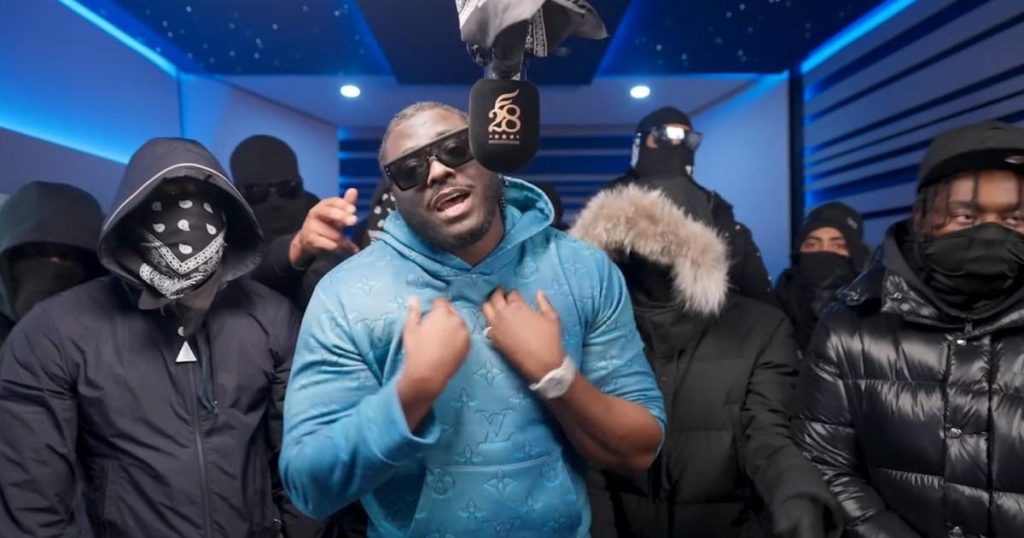Paragraph 1: A Controversial Release Fuels Public Outcry
Isaac Donkoh, a drill rapper known as Young Dizz, sparked outrage after boasting about his potential to "raise the crime rate" following his early release from prison. Donkoh, who served a portion of a 12.5-year sentence for kidnapping and torturing a 16-year-old boy, was freed two weeks early under a new Labour government scheme aimed at alleviating prison overcrowding. His release coincided with the release of his new rap song, “Plugged In,” in which he taunted Keir Starmer, the Labour leader, for releasing him and then seemingly regretting the decision. The lyrics immediately ignited controversy, with critics questioning the wisdom of the early release program and its potential consequences for public safety.
Paragraph 2: The Crime that Shocked the Nation
Donkoh’s original conviction stemmed from a brutal 2018 attack on a 16-year-old boy in Barking, East London. The victim was lured to a meeting, then violently forced into a car by Donkoh and four accomplices. The boy was subjected to a terrifying ordeal that included threats with a machete, suffocation with plastic bags, and a beating with a metal pole. He was also stripped naked, filmed, and his hair partially cut off. Forced to call his parents and plead for a £1,500 ransom, the victim endured hours of fear and humiliation. His testimony in court painted a chilling picture of the trauma he suffered at the hands of Donkoh and his accomplices.
Paragraph 3: A Controversial Early Release Scheme
The early release scheme, introduced by the Labour government, aimed to address the critical issue of overcrowding in UK prisons. With the system operating near capacity, the government argued that the early release of certain prisoners was a necessary measure to prevent a complete breakdown of law and order. The scheme targeted prisoners who had served at least 40% of their sentences, excluding those convicted of violent offenses with sentences exceeding four years. Despite this exclusionary clause, Donkoh became eligible due to his three-year sentence for GBH running concurrently with longer sentences for kidnapping and false imprisonment. The scheme’s implementation was met with mixed reactions, with some celebrating the reduced prison population while others expressed deep concerns about the potential for increased crime.
Paragraph 4: Donkoh’s Provocative Return to Society
Donkoh’s release was immediately followed by a provocative display of wealth and a blatant disregard for the gravity of his crimes. Within hours of leaving prison, he posted a picture of himself on social media posing with a luxury armored vehicle, boasting of the need to "be careful." This ostentatious display further fueled public anger and heightened concerns about his intentions. The release of his rap song “Plugged In” only added fuel to the fire, with its lyrics appearing to mock the justice system and boast about a potential return to criminal activity.
Paragraph 5: A Nation Divided: The Fallout of the Early Release
The early release scheme and Donkoh’s subsequent behavior sparked widespread debate and criticism. Opponents of the scheme argued that it prioritized reducing prison populations over public safety, while supporters maintained that it was a necessary measure to prevent a collapse of the prison system. The case highlighted the complex and often contentious issue of balancing the need for rehabilitation with the imperative to protect society. Donkoh’s case became a focal point for this debate, raising questions about the efficacy of the scheme and the potential for reoffending among those released early.
Paragraph 6: A Troubling Precedent and Uncertain Future
Donkoh’s case highlighted the potential pitfalls of early release programs and the challenges of reintegrating offenders into society. His provocative actions following his release raised serious concerns about his commitment to rehabilitation and the risk he posed to the public. The incident also underscored the difficulties faced by policymakers in balancing the competing demands of prison reform and public safety. As Donkoh’s case continues to unfold, it serves as a stark reminder of the complexities of the criminal justice system and the ongoing debate over how best to address crime and rehabilitation.




